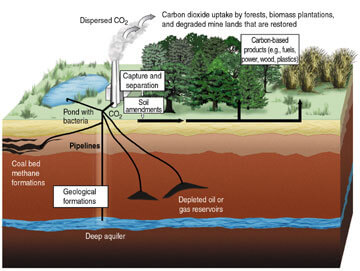
Douglas Morris
Mining and Power Industries Sr. Manager
Coal fired power receives a lot of attention and is in the news again with the recent ruling by the U.S. Supreme Court upholding the Environmental Protection Agency (EPA)’s ability to regulate air pollution from coal-burning power plants. Right now, it’s very difficult to site a coal plant in the United States but many other places around the world, including Europe, are using coal to generate power.
Coal will remain an important part of generating portfolios globally. The discussion that needs to take place is how we make the use of coal meet the needs of all sides of the arguments about its use. Would you believe that China is leading the way to come up with technologies that may make coal a better fuel?
A recent article in Wired Magazine provides a non-biased look at the use of coal and addresses growth and energy drivers that show that it will be a required part of the global energy mix, far into the future. The piece is titled “Renewables Aren’t Enough. Clean Coal Is the Future“…here is an excerpt:
Key to addressing this is Carbon Capture and Storage or CCS. This is essentially a process that strips carbon dioxide from the process and stores it without is entering the atmosphere. It’s a process that’s evolving and China is working to make it happen.The International Energy Agency (IEA), a Paris-based think tank sponsored by 28 developed nations, estimates that Beijing will double its ranks of coal-fired power plants by 2040. If that happens, China’s carbon dioxide figures could double or even triple. “Coal is too low-cost, too plentiful, and too available from reliable sources to be replaced,” says fuel analyst John Dean, president of the JD Energy consulting firm. “China is putting in solar and wind power at a tremendous pace, but it will have to use more and more coal just to keep up with rising demand.”
In the US, there is not support yet to drive CCS as a viable technology, but according Wired, “The picture looks different from Beijing, where ample coal supplies are both a national treasure and a national emergency. The Chinese government faces twin imperatives: lifting people out of poverty and avoiding the worst consequences of industrialization. As a result, (sic), ‘we must make CCS work.'”
To connect and interact with other power industry professionals, join the Power track of the Emerson Exchange 365 community.

